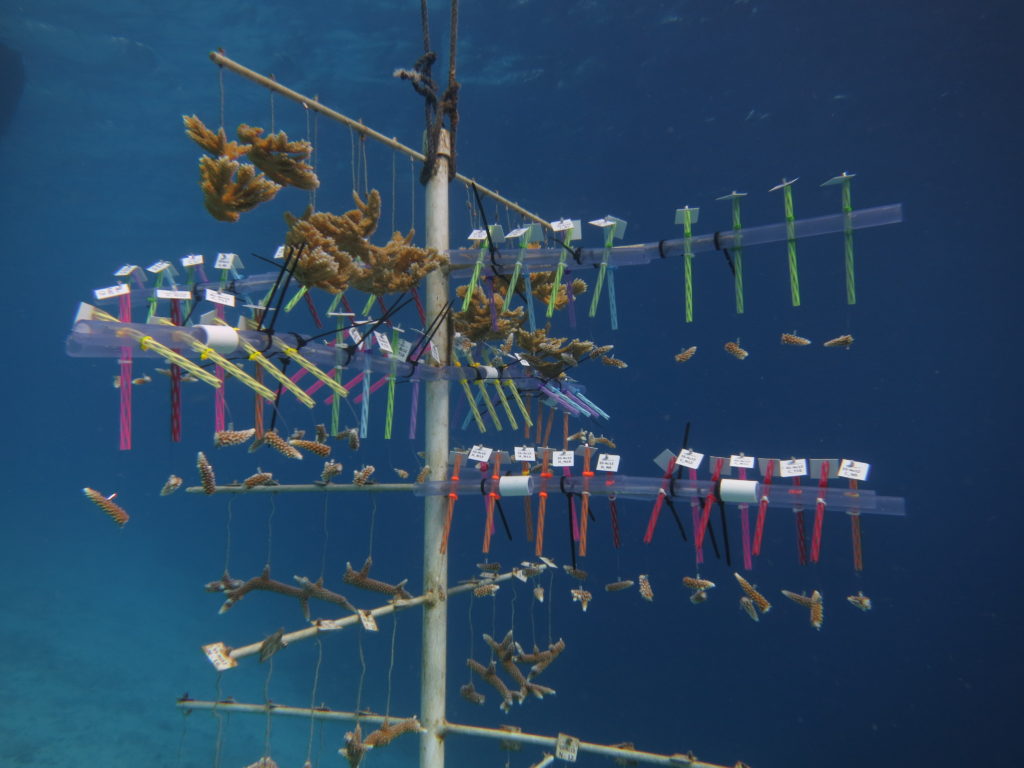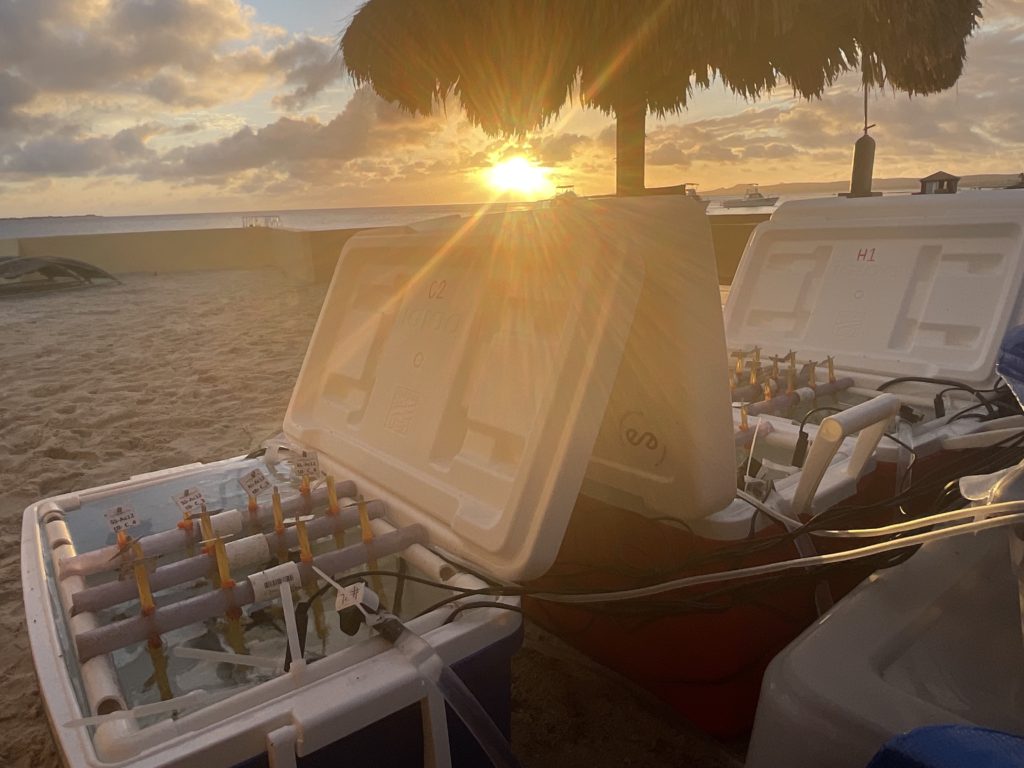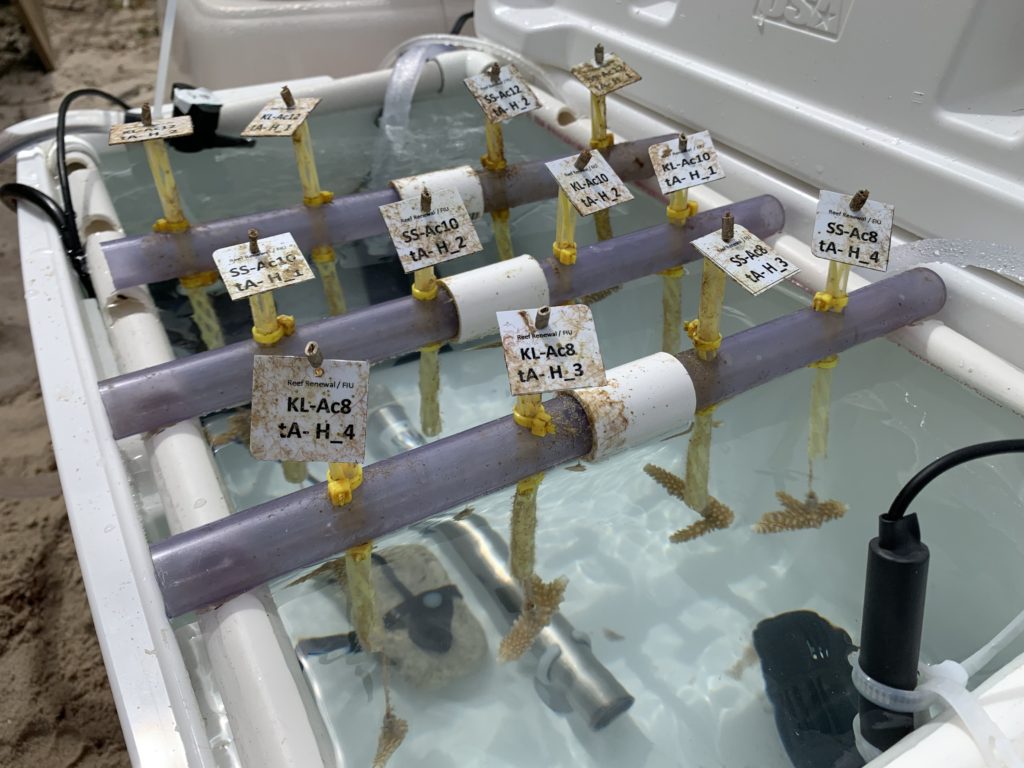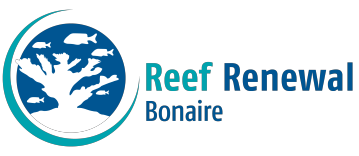Coral “stress hardening”
Corals are vulnerable to multiple environmental stressors including nutrient pollution and rising ocean temperatures. In some cases, experiencing environmental stress can increase a coral’s ability to tolerate later stress exposures. Coral “stress hardening” (exposing corals to moderately stressful conditions with the goal of increasing their stress tolerance) has the potential to increase coral resilience and the long-term success of coral restoration efforts.
For example, nursery sites could be selected for environmental conditions expected to better prepare corals for stressors that they may experience after outplanting. However, this strategy has not yet been assessed within an active coral restoration program.

In collaboration with Reef Renewal Foundation Bonaire (RRFB), Ph.D. candidate Serena Hackerott has recently begun a study to explore the influence of coral nursery sites on coral performance and stress tolerance. Throughout the project, Hackerott and additional members of Dr. Jose Eirin-Lopez’s Environmental Epigenetics Lab (EELab) at Florida International University will monitor staghorn corals (Acropora cervicornis) of three genotypes, or identical genetic “strains”, at two RRFB sites.
The two sites were selected based on differences in environmental conditions and coral growth rates documented in a previous collaborative EELab/RRFB study. Additionally, corals of each genotype have been living at each site for multiple years, providing a unique opportunity to compare coral clones (i.e., of the same genotype) with different environmental histories.


Assessing coral thermal tolerance
In June 2021, Hackerott and EELab undergraduate student Wendy Paez initiated the first step of this project by conducting an assessment of coral thermal tolerance. Using a temporary aquarium system that they constructed in front of the RRFB office, these researchers exposed corals to different thermal challenge temperatures across three repeated experimental trials. Each acute trial lasted 18-hours, which required some late nights and early mornings to continually monitor the system. However, these long hours will provide an important first measurement of the thermal tolerance of coral clones from different sites. Coral samples collected after the thermal challenges are currently being analyzed in the EELab for metrics of heat stress such as coral bleaching.
This data will provide a baseline for the next phase of the project, including a reciprocal transplant of corals between the two study sites to explore coral environmental memory within restoration. The overall goal of the study is to improve long-term coral restoration outcomes by describing the effect of previous environmental experiences within coral nurseries on coral resilience and to evaluate the persistence (or “memory”) of this effect following transplantation.
Written by: Serena Hackerott • www.serenahackerott.com
Ph.D. Candidate • Florida International University
Institute of the Environment • FIU CREST-CAChE Fellow
Dr. Eirin-Lopez’s Environmental Epigenetics Lab: http://environmentalepigenetics.com



